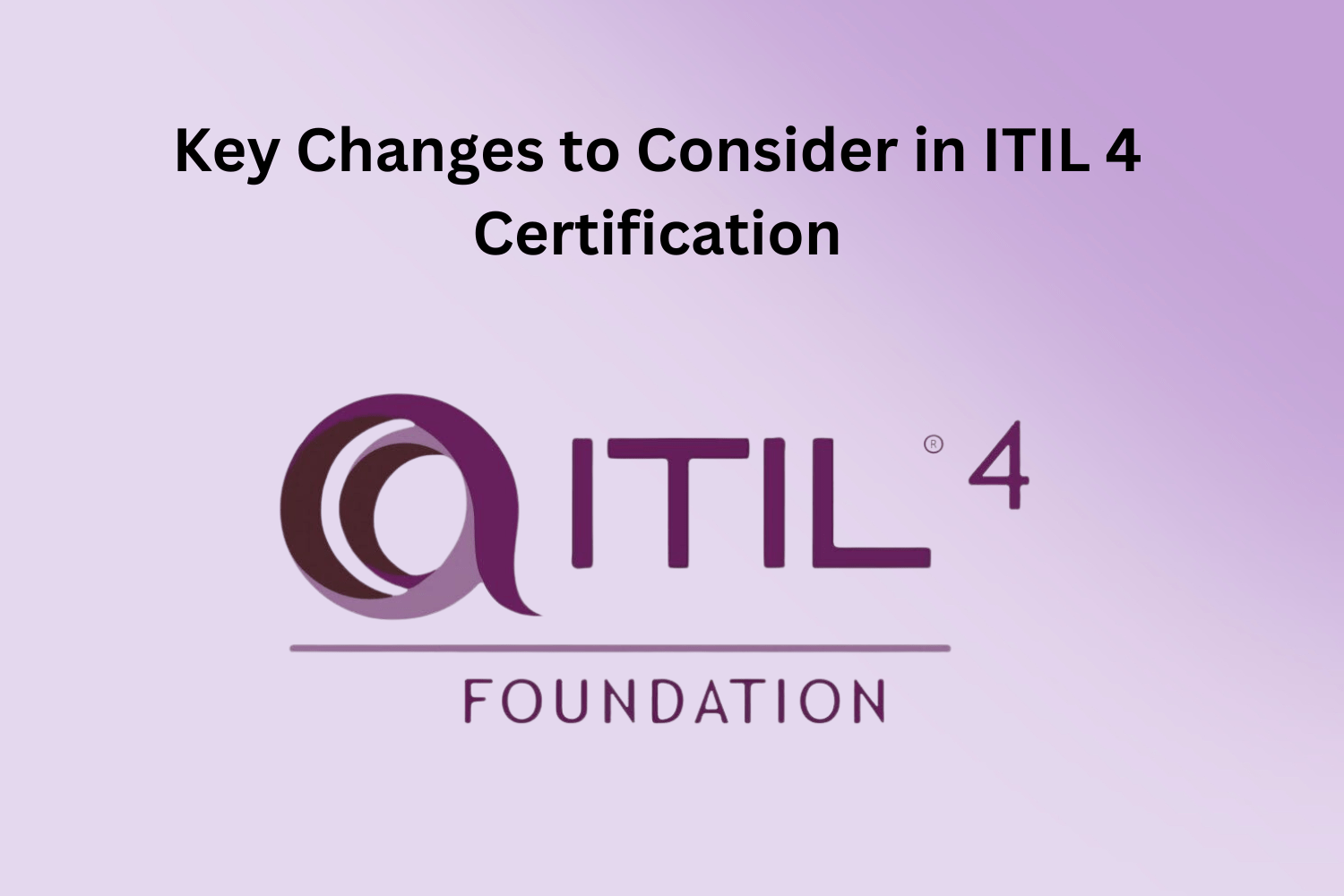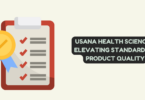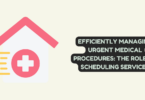
Key Changes to Consider in ITIL 4 Certification
IT service management professionals have a clear ITIL Certification Path that helps to improve their skills and advance their careers. If you are starting your career in ITIL or are changing from ITIL v3 technologies, you must understand the changes introduced. ITIL 4 Foundation Training helps professionals to advance their careers in this field.
This blog will explain the important changes in ITIL 4 certification.
Table Of Contents
- Latest Updates of ITIL 4 Consideration
- Conclusion
Latest Updates of ITIL 4 Consideration
Emphasis on Service Value
In ITIL 4, it is focusing more on service value. This emphasises providing value to stakeholders and consumers, whereas ITIL v3 concentrates on procedures and functions. This change reflects the changing demands of contemporary organisations since information technology services are crucial to accomplishing long-term goals. In the end, it generates substantial results for the company.
Service Value System (SVS) Introduction
The Service Value System (SVS) is a method for overseeing IT services introduced in ITIL 4. SVS includes the Service Value Chain, guiding principles, governance, practices, and continuous improvement. Understanding the SVS is crucial for successfully delivering value-driven IT services, and it is a prerequisite for ITIL 4 certification.
Four Dimensions of Service Management
ITIL 4 also introduced the Four Dimensions of Service Management. Organisations and People. IT and Data, Suppliers and Partners, and Value Streams and Processes. Candidates for the ITIL 4 certification need to understand how these aspects collaborate to facilitate service delivery and value production.
Simplified Certification Structure
ITIL 4 certification structure is simple as compared to the v3. There are four levels of certification: Foundation, Managing Professional, Strategic Leader, and Master. Candidates can advance their ITIL knowledge and abilities according to their professional objectives. They need to choose the certification carefully.
Inclusion of ITIL Practices and Principles
ITIL 4 includes a collection of ITIL practices and guiding concepts to help businesses successfully embrace and apply ITIL principles. Methods like Incident Management, Change Control, and Service Level Management lay forth concrete steps for overseeing particular facets of information technology services. With ideas like “Keep it Simple and Practical,” “Collaborate and Promote Visibility,” and “Focus on Value,” IT service managers have broad guidelines by which to make decisions and act.
Continuous Learning and Adaptation
ITIL 4 fosters a culture of constant learning, adaptation, and development. Candidates for the IT Infrastructure Library (ITIL) 4 certification should show they are dedicated to learning. It is essential for them to keep up with the latest developments in their field and adjust ITIL processes to fit new business and technology needs. Certification holders are expected to continuously participate in improving their organisations’ IT service management procedures and operations.
Increased Focus on Agile, DevOps, and Lean Practices
ITIL 4 promotes collaboration, agility, and continuous improvement through Agile, DevOps, and Lean principles, requiring professionals to understand Agile methods like Scrum, Kanban, and DevOps concepts. Lean ideas like waste reduction and value stream mapping are essential for ITIL 4 certification candidates. You need to familiarise yourself with these practices if you want to apply the ITIL 4 principles to use them in your organisation.
Practical Application of ITIL 4 Concepts
As a last step, the ITIL 4 certification tests candidates’ ability to implement ITIL theory. Prospective employees should show they can solve complex challenges, use ITIL 4 best practices, and contribute to their companies’ success. Certification applicants would do well to gather examples of effective ITIL 4 implementations, case studies, and practical experience.
Conclusion
IT workers who want to become experts in IT service management and become certified in ITIL 4 must familiarise themselves with the significant changes made to the certification. To obtain ITIL certification, candidates must embrace these changes, stay informed about ITIL 4 practices, and demonstrate practical implementation. For more information visit the website: The Knowledge Academy






